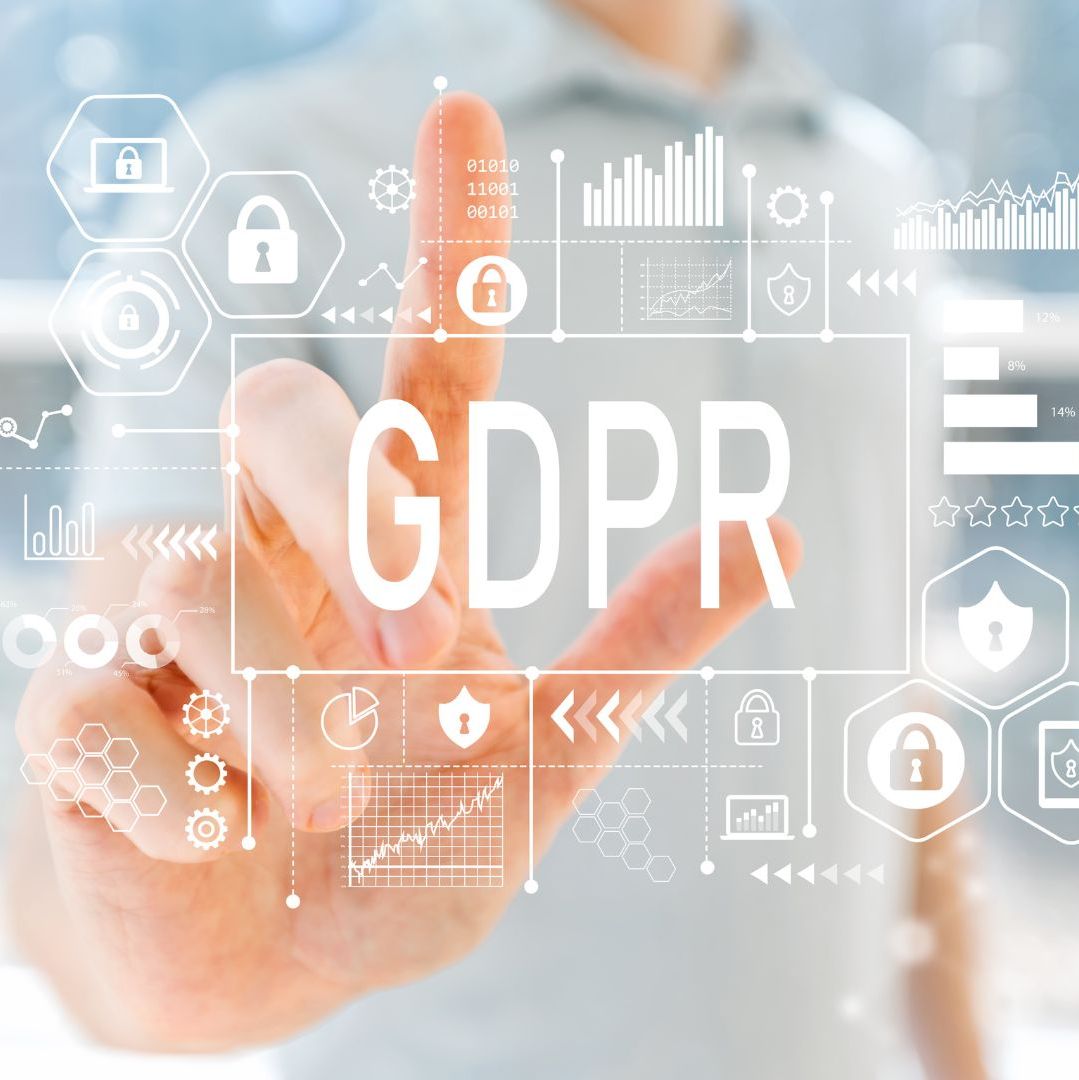Navigating Data Privacy Compliance For Transcription
HIPAA, GDPR, and More: Navigating Data Privacy Compliance For Transcription
In an era where digital data is omnipresent, choosing a transcription service entails more than just assessing turnaround times and accuracy. For researchers, health practitioners, legal professionals, journalists, and others handling sensitive information, ensuring data privacy compliance is critical. This brings to the forefront key regulations like the Health Insurance Portability and Accountability Act (HIPAA) and the General Data Protection Regulation (GDPR).
HIPAA, a U.S. law, protects patient health information, while GDPR, an EU regulation, safeguards personal data and privacy. When selecting transcription services, it’s vital to ask: Does the service comply with these standards? How do they protect audio, video, and text data? Understanding these aspects is crucial for maintaining confidentiality and legal compliance.
Understanding Data Privacy Compliance in Transcription Outsourcing
Understanding HIPAA and GDPR Compliance
Compliance with HIPAA and GDPR means ensuring that transcription services have strict protocols for handling sensitive data, including encryption and secure data transfer methods.
Data Privacy compliance with HIPAA and GDPR is not just a regulatory requirement but a cornerstone in establishing trust and reliability in transcription services. HIPAA, primarily concerned with the protection of patient health information in the U.S., mandates stringent measures to safeguard privacy and limit unauthorised access. GDPR, on the other hand, extends beyond healthcare to cover all personal data within the EU, focusing on individual rights and data sovereignty.

These regulations compel transcription services to adopt robust data handling practices, including advanced encryption methods and secure data transfer protocols. It’s not just about preventing unauthorised access; it’s about ensuring that every touchpoint in the data handling process upholds the highest standards of privacy and integrity.
Moreover, compliance with these regulations isn’t static; it evolves with emerging threats and changing legal landscapes. This means that transcription services must continually update their security practices and policies. They must stay abreast of the latest developments in data protection laws and adapt their protocols accordingly. This ongoing commitment to compliance reflects a transcription service’s dedication to data security, making it a vital criterion for clients handling sensitive information.
When evaluating a transcription service, it’s essential to inquire about their specific data privacy compliance strategies with HIPAA and GDPR. Are they using the latest encryption technologies? How do they ensure that their data transfer methods are secure? Answers to these questions will provide a clearer picture of their compliance stance.
Risks of Non-Compliance
Non-compliance can lead to data breaches, legal penalties, and a loss of trust. A breach under GDPR, for instance, can result in fines of up to 4% of annual global turnover or €20 million, whichever is higher.
The risks of non-compliance with data protection regulations like HIPAA and GDPR are significant and multifaceted. Firstly, there’s the financial aspect. GDPR violations, for instance, can result in hefty fines, potentially reaching 4% of a company’s annual global turnover or €20 million, whichever is higher. This financial blow can cripple a business, but the repercussions extend beyond monetary losses. There’s also the risk of data breaches, which can lead to sensitive information falling into the wrong hands. Such incidents not only violate individual privacy but can also lead to identity theft, financial fraud, and other serious consequences.
Furthermore, non-compliance damages a company’s reputation. Trust is hard to earn and easy to lose. Once clients realise that a transcription service doesn’t adhere to legal data protection standards, regaining their confidence becomes an uphill battle. This loss of trust can lead to a decline in clientele, as users increasingly opt for services that prioritise their privacy and legal obligations.
The ripple effect of non-compliance can also extend to legal complications. Companies may find themselves embroiled in lawsuits and legal disputes, draining resources and diverting focus from their core business operations. Therefore, it’s imperative for transcription services to not only understand the risks associated with non-compliance but to actively work towards mitigating them through rigorous adherence to data protection laws.
Evaluating Data Security Measures
Assess if the service offers encrypted file transfers, secure storage, and whether they conduct regular security audits.
When assessing a transcription service’s data security measures, there are several key factors to consider. Encryption is the first line of defence in protecting data from unauthorised access. It’s essential to verify whether the transcription service employs state-of-the-art encryption for file transfers and data storage. But encryption alone isn’t enough. The service should also have robust security protocols in place for handling data, including secure data transmission channels and protected storage solutions. Moreover, regular security audits are crucial in identifying potential vulnerabilities and ensuring that the security measures in place are effective and up-to-date.
Additionally, it’s important to look at the bigger picture of the service’s overall security posture. This includes evaluating their incident response plans and disaster recovery strategies. How quickly and effectively can they respond to a security breach? Do they have procedures in place to mitigate damage and prevent future occurrences? These aspects are critical in ensuring that your data remains protected not just in everyday operations but also in the face of unforeseen security challenges. Furthermore, transparency in their security practices is a key indicator of a service’s commitment to data protection. Services that openly discuss their security measures and are willing to provide detailed information are typically more reliable and trustworthy.
Employee Training and Awareness
Ensure that the transcription service’s staff is trained on data privacy laws and understands the importance of confidentiality.
The role of employee training and awareness in maintaining data privacy cannot be overstated. It’s essential that staff members at a transcription service are not only well-versed in the technical aspects of data protection but also fully understand the legal implications of data privacy laws like HIPAA and GDPR. This training should cover the basics of personal data handling, the importance of maintaining confidentiality, and the legal consequences of non-compliance. Staff should be regularly updated on the latest data protection trends and regulatory changes to ensure ongoing compliance.
Moreover, a culture of privacy and security should be ingrained in the organisation. Employees should be encouraged to take proactive steps in safeguarding data and to report any potential security breaches. Regular drills and assessments can help keep data privacy at the forefront of their minds and ensure that they are prepared to handle sensitive information responsibly. This level of training and awareness is not just a regulatory requirement; it’s a crucial aspect of a transcription service’s integrity and commitment to protecting client data.
Data Processing Agreements
Check if the service provides clear data processing agreements that align with HIPAA and GDPR requirements.
Data Processing Agreements (DPAs) are a crucial element in the compliance puzzle. These agreements serve as a formal contract between the transcription service and its clients, outlining the responsibilities and obligations of both parties in relation to data processing. A well-structured DPA should clearly state how data will be handled, processed, and protected in compliance with HIPAA and GDPR regulations.

It should detail the scope of data processing activities, the purpose of data processing, and the duration for which data will be retained. Additionally, it should specify the measures in place to ensure data security, including data encryption, access controls, and audit trails.
Clients should scrutinise these agreements to ensure that they align with their own data protection policies and legal requirements. It’s not just about having a DPA in place; it’s about ensuring that the DPA is comprehensive and up-to-date with the latest data protection laws. This includes provisions for data subject rights, such as the right to access, rectify, and erase personal data. A transparent and detailed DPA not only ensures legal compliance but also builds trust between the transcription service and its clients. It’s a testament to the service’s commitment to data privacy and its willingness to be held accountable for its data handling practices.
International Data Transfers
For services operating across borders, verify their data privacy compliance with international data transfer regulations.
For transcription services operating across borders, compliance with international data transfer regulations is a complex yet crucial aspect. The transfer of data across different jurisdictions must adhere to specific legal frameworks to ensure that the level of data protection is not undermined. For example, transferring data from the EU to a non-EU country requires adherence to the GDPR’s stringent transfer mechanisms, such as standard contractual clauses or binding corporate rules. It’s imperative for transcription services to understand these requirements and implement appropriate safeguards to ensure that international data transfers are compliant.
Clients should inquire about the service’s policies and mechanisms for international data transfers. Do they have a clear understanding of the legal implications of transferring data across borders? How do they ensure that data transferred to other countries remains protected in accordance with the highest standards? These are important considerations, especially for clients who operate in multiple countries or handle data from international sources. A transcription service that is well-versed in the nuances of international data transfer regulations is better equipped to handle the complexities of global data privacy compliance.
Data Retention Policies
Look for services with transparent data retention policies that align with legal requirements.
Data retention policies are a critical component of data privacy compliance. These policies should clearly outline how long data will be retained and the criteria for its deletion. Under HIPAA and GDPR, data should not be kept longer than necessary, and transcription services must have clear procedures for securely disposing of data once it is no longer needed. This includes not only the deletion of files but also the secure erasure of any backups or copies. Clients should look for services with transparent and well-defined data retention policies that align with legal requirements and best practices.
Furthermore, these policies should be regularly reviewed and updated to reflect changes in data protection laws and industry standards. Clients should feel confident that their data will not be retained indefinitely and that there are robust mechanisms in place for its secure deletion. A transcription service’s approach to data retention is indicative of its overall commitment to data privacy compliance.
Client Testimonials and Case Studies
Client feedback can provide insights into the service’s reliability and data privacy compliance record.
Client testimonials and case studies are invaluable resources in assessing a transcription service’s compliance and reliability. They provide real-world insights into the service’s performance and adherence to data privacy laws. Positive testimonials from clients in sensitive industries, such as healthcare or legal, can be particularly telling.

These endorsements suggest a high level of trust and satisfaction with the service’s handling of confidential information. Case studies can also demonstrate a service’s ability to navigate complex compliance scenarios. They can illustrate how the service has successfully implemented data protection measures in line with HIPAA and GDPR, providing concrete examples of their commitment to compliance. When evaluating a transcription service, potential clients should seek out these testimonials and case studies as they offer a more nuanced understanding of the service’s capabilities and track record.
Certifications and Audits
Check for any industry certifications or audit reports that affirm the service’s commitment to data privacy.
Certifications and independent audits are critical indicators of a transcription service’s commitment to data privacy. Industry certifications, such as ISO 27001 for information security management, signify that the service adheres to internationally recognised standards. These certifications often require rigorous assessments and regular audits, ensuring ongoing compliance and improvement. Clients should look for these certifications as they provide an added layer of assurance regarding the service’s data protection capabilities.
Moreover, regular independent audits are essential in evaluating the effectiveness of the service’s data security measures. These audits provide an objective assessment of the service’s compliance with data protection laws and industry best practices. They help identify potential vulnerabilities and areas for improvement, ensuring that the service maintains the highest standards of data security. When choosing a transcription service, it’s advisable to inquire about their certification status and audit history, as these factors are indicative of their dedication to maintaining robust data privacy protocols.
Customisation for Compliance
Some services offer customisation options to meet specific data privacy compliance needs of different industries.
The landscape of data privacy and protection is not one-size-fits-all, especially when it comes to transcription services. Different industries have unique data privacy compliance needs, and a transcription service that offers customisation options is invaluable. For example, the medical sector, bound by HIPAA, requires stringent measures to safeguard patient information.
Similarly, companies operating within the EU, or dealing with EU citizens’ data, must align with GDPR mandates. Customisation in this context means the ability to tailor services to adhere strictly to these diverse and specific regulations. This customisation could include varied methods of secure data transmission, specialised encryption formats, or even the option to have transcribers who are specifically trained and certified in particular industry standards.
However, the depth of customisation goes beyond just meeting legal requirements. It involves an understanding of the nuances within each sector. For instance, legal firms might need transcription services that are not only secure but also capable of handling complex legal terminology and formats. Academic institutions might require transcription services that can handle multiple speakers, such as in lectures or seminars, while ensuring that the confidentiality of the research is maintained. For journalists, customisation might mean having a service that can rapidly transcribe interviews while ensuring the anonymity of sources when required.
This level of customisation demands a transcription service provider to be highly adaptive, integrating advanced technology with human expertise. The service provider must be capable of evolving and updating its practices in line with the ever-changing landscape of data privacy laws and industry-specific requirements. This adaptability ensures that no matter the sector, clients can trust that their data is handled with the utmost care and in full compliance with relevant regulations.
Moreover, customised data privacy compliance is not just about adhering to laws; it’s about fostering trust. When clients see that a transcription service goes the extra mile to respect and protect the intricacies of their industry’s data privacy needs, it builds a relationship based on confidence and reliability. This trust is paramount, especially in an era where data breaches and privacy concerns are constantly in the spotlight.
In essence, a transcription service offering customisation for data privacy compliance is not just providing a service; it is offering peace of mind. Such a service assures clients that their sensitive information is not only being transcribed accurately but also managed with a deep understanding of and adherence to the specific legal and ethical standards of their industry. This level of dedication to customised compliance is what sets apart top-tier transcription services in a market that is increasingly conscious of data privacy and security.
Key Tips For Data Privacy Compliance Checks For Transcription Services
- Always verify a transcription service’s compliance with HIPAA and GDPR.
- Assess their data security measures, including encryption and secure storage.
- Look for services with a proven track record and positive client testimonials.
- Consider services that offer customisation for specific industry needs.
Way With Words provides highly confidential transcription services, ensuring compliance with local and international data privacy laws. They prioritise secure transcription, making them a reliable choice for handling sensitive data.
Choosing a transcription service that adheres to data privacy laws like HIPAA and GDPR is crucial. This decision impacts not just the confidentiality of the data but also the legal standing of your practice or research. When in doubt, opt for services like Way With Words, known for their accuracy and commitment to data privacy.
Data Privacy Compliance Resources
For highly accurate and confidential transcription, visit Way With Words. They excel as a human transcription service, prioritising both accuracy and compliance with data privacy laws.
For more about GDPR visit https://gdpr-info.eu/.
For more about HIPPA visit https://www.hhs.gov/hipaa/index.html .
